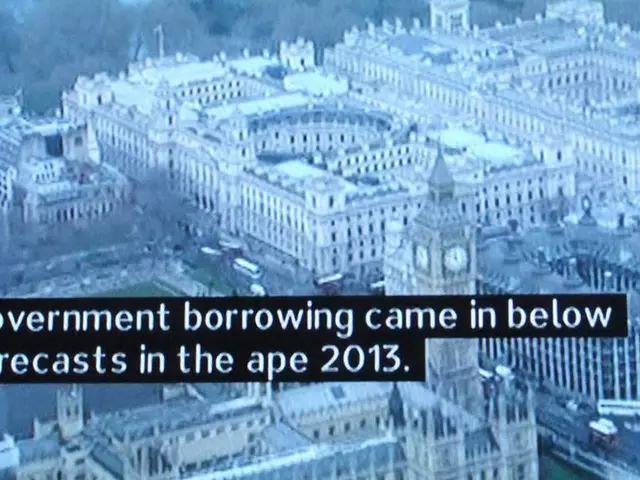Italy's summer economic pressures spark discussion on tourism as a potential solution
Rising Summer Tourism Costs in Italy and Spain Cause Concern
Summer tourism costs in Italy and Spain are on the rise, leading to increased expenses for travellers and sparking debate about affordability and government action.
In both countries, steep price increases have been reported in hotels, restaurants, beach services, and tourist amenities, often far exceeding inflation. In Italy, the cost of renting sunbeds and parasols has doubled over five years, with average weekly prices for a parasol and two sunbeds reaching around €212 [2]. Similar trends are seen in Spain, where major tourist areas have reported substantial price hikes during the peak summer season [2][3].
These increases are causing concern and debate, as they contribute to a slowdown in beach tourism and reduced visitor spending. In some cases, the rental of umbrellas and sun loungers has gone up by more than 20% in just one year in Spain [5]. Despite forecasts of a revival, some beaches are notably less crowded than expected this summer [1][3][4].
The political debate in Italy centers on responsibility and government action. Prime Minister Giorgia Meloni has denied claims of a crisis, accusing the opposition of spreading false information that damages Italy’s tourism image [2]. In contrast, the opposition leader, Elly Schlein, has criticized the government for "summer price hikes," accusing it of ignoring the crisis affecting ordinary Italians [2].
Regulatory delays on beach licensing in Italy keep private operators dominant, maintaining high beach service prices. Since 2006, the EU has called for liberalizing beach licenses through public tenders, but successive Italian governments, including Meloni’s, have postponed these reforms, delaying decisions until at least 2027 [3].
In Spain, reports from consumer associations have highlighted steep rises in hotel rates, restaurant bills, and beach concession fees, often exceeding inflation. These price pressures exacerbate the issue, contributing to reduced tourist spending [1][2][3][4]. The sharp increase in utility prices across Europe, particularly electricity, has added pressure on hotel operators and restaurants, which often pass these expenses directly to customers [6].
The trend of rising tourism costs has drawn criticism from neighborhood associations and trade unions in Spain, who argue that many residents and Spanish families can no longer afford a holiday in their own country [6]. Economists attribute the surge in prices to a combination of factors, including post-pandemic demand, higher energy and food costs, and the return of foreign visitors willing to spend more [6].
The situation risks excluding large parts of the population from traditional summer travel, according to consumer advocates [4]. Italian households, whose wages have stagnated for over a decade, are finding it harder to afford domestic vacations, a point the opposition has used to challenge government policies on wages and living costs [4].
The leader of the Democratic Party, Elly Schlein, accused Giorgia Meloni's government of blocking the introduction of a minimum wage and doing nothing to tackle high utility bills in Europe [4]. The debate over rising tourism costs in Spain, like in Italy, is centered around affordability for local families and the impact on local communities [1][2][3].
In summary, rising costs in hotels, beach services, and tourist amenities are causing increased summer tourism expenses in Italy and Spain. These costs outpace inflation, affecting tourism demand and visitor behavior. Political debate in Italy centers on responsibility and government action, with government denying a crisis despite opposition criticism. Regulatory delays on beach licensing in Italy keep private operators dominant, maintaining high beach service prices. Similar price pressures in Spain exacerbate the issue, contributing to reduced tourist spending.
References:
- El Pais
- BBC News
- The Local Italy
- Reuters
- The Guardian
- Euractiv





